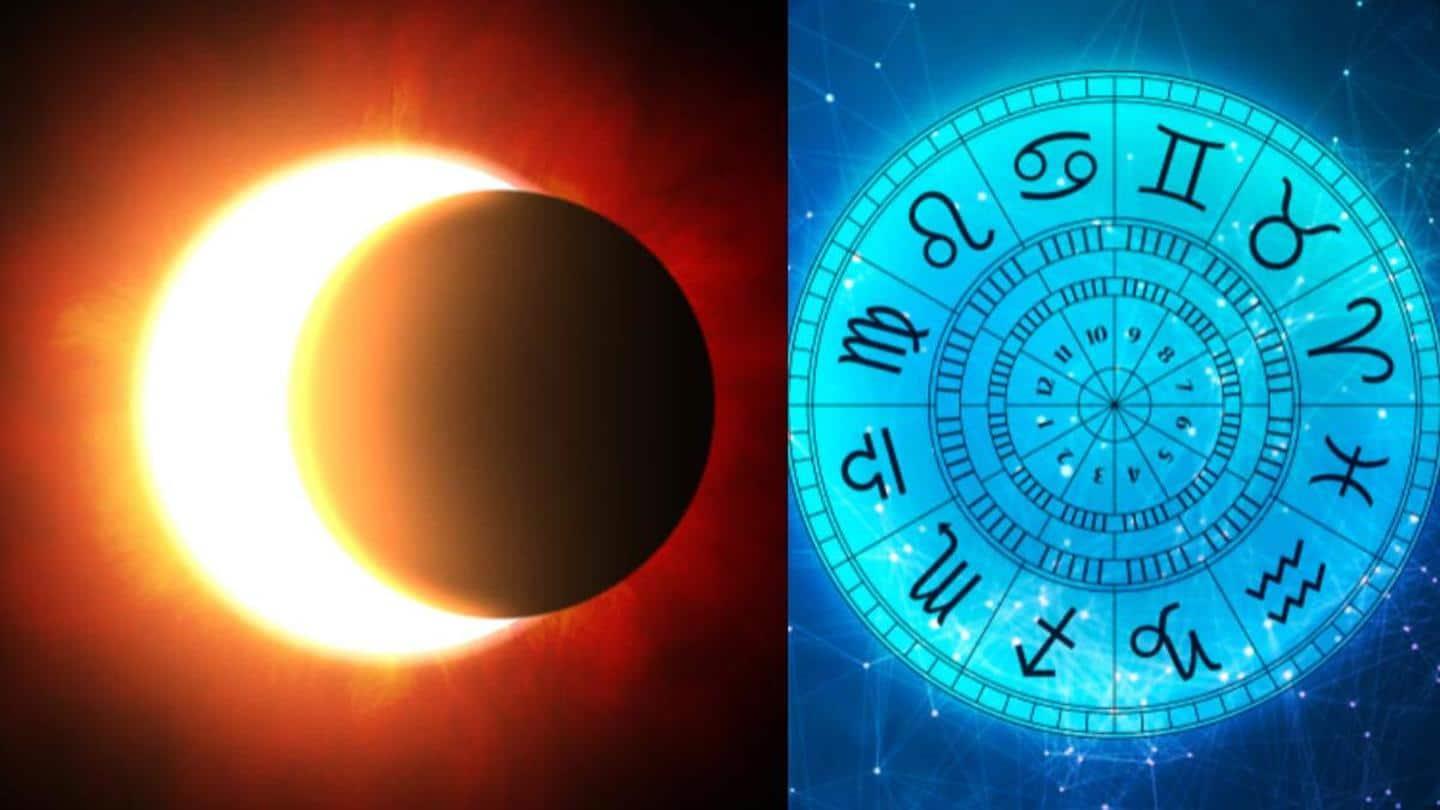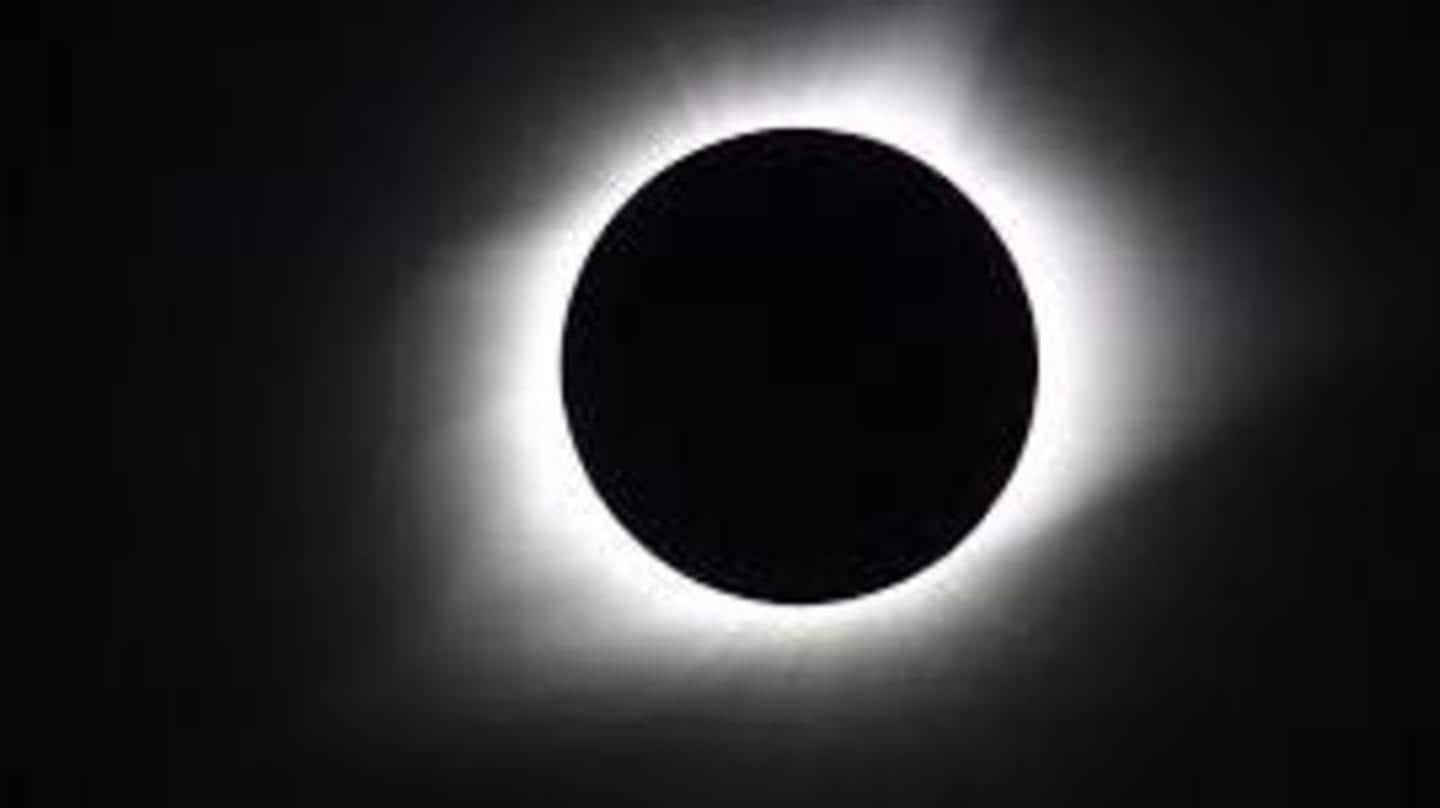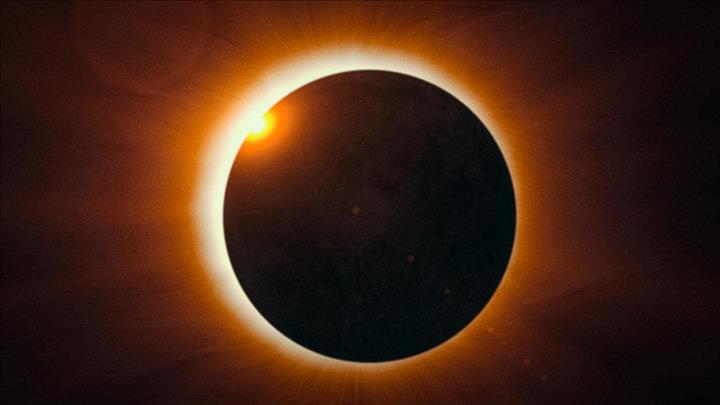
India - Solar eclipse 2021: NASA scientists explain 8 myths and facts
Several parts of the world will witness a solar eclipse Saturday as the Moon passes between Earth and the Sun, casting a shadow on some areas of our planet, blocking the Sun's light. A total solar eclipse will only be visible from Antarctica, while those in southern hemisphere countries can witness a partial eclipse. However, it won't be visible from India. Here's more.
Details Which countries can see solar eclipse?A partial solar eclipse will be visible from certain countries in the southern hemisphere. These include Saint Helena, Namibia, Lesotho, South Africa , South Georgia and Sandwich Islands, Crozet Islands, Falkland Islands, Chile, New Zealand, and Australia. However, people in the northern hemisphere countries, including India, can see it via live stream telecast by the National Aeronautics and Space Administration (NASA).
Experts Scientists explain myths and facts
Ahead of a previous solar eclipse, scientists at NASA explained some myths and facts associated with solar eclipses. The scientists debunked the myth propagated by astrologers that a solar eclipse after six months of one's birthday, or even on the birthday, is a sign of one's impending bad health. Scientists maintained it has no scientific basis and is nothing more than some mere coincidence.
Myths Do rays from solar eclipse cause blindness?
'During a total solar eclipse when the disk of the moon fully covers the sun, the brilliant corona emits only electromagnetic radiation, though sometimes with a greenish hue,' the scientists say. However, they disapprove of the view that it can cause blindness. 'There is nothing in the coronal light that could cross 150 million kilometers of space, penetrate our dense atmosphere, and cause blindness.'
Celestial events Does solar eclipse refer to exceptional celestial events?
Astrologers also believe a solar eclipse refers to exceptional celestial events taking place in time and space. As per scientists, solar eclipses 'reaffirm' what Sir Isaac Newton admired over 300 years ago, that the universe has a 'sublime clock-work regularity.' This is because solar eclipses 'can be mathematically predicted across thousands of years,' the scientists argue.
Pregnancy Is it harmful for pregnant women?There are beliefs that pregnant women should not see the solar eclipse as it could harm the fetus. Such beliefs result from the 'false idea that harmful radiations are emitted during a total solar eclipse,' scientists maintain. Both electromagnetic radiation from the Sun and neutrinos—born out of nuclear fusion inside the Sun—are harmless to humans, including pregnant women and the developing fetus, they add.
Forecast Does it foretell major life changes?According to scientists, this astrological assumption that solar eclipses foretell imminent major changes in life and upcoming events is based on 'coincidences and non-scientific beliefs in how celestial events control human behavior.' 'This is a logically-flawed used of confirmation bias in which you prove a cause-and-effect relationship by ignoring failures and only consider successful forecasts (sic),' they add.
Food poisoning Is it true eclipses poison food?
Scientists believe this idea of food poisoning, too, is based on the false premise that radiations emitted during eclipses are harmful. 'If that were the case, the same radiations would harm the food in your pantry, or crops in the field,' they explained. Total eclipses look frightening. Thus, the scientists say, it is easy for people to make up fearful stories about them.
Bias Do eclipses indicate something very bad about to happen?Scientists termed such believes as Confirmation Bias, in which people tend to remember only 'the occasions when two things happened together, but forget all of the other times when they did not.' They attribute this to the human tendency of understanding things in a pattern. Thus, some coincidental historical events coinciding with solar eclipses are often regarded as an approval of bias views.
Moon Does Moon turn black during a total solar eclipse?
Explaining this phenomenon, scientists say the dark lunar surface beyond the crescent of a first-quarter Moon is often seen weakly illuminated. 'This is because...Earth is very bright in the sky and its weak light is enough to turn the lunar surface a pale milky white.' So even 'during a total solar eclipse, the lunar surface will be dimly seen due to earthshine,' they add.
Share this timeline
Legal Disclaimer:
MENAFN provides the
information “as is” without warranty of any kind. We do not accept
any responsibility or liability for the accuracy, content, images,
videos, licenses, completeness, legality, or reliability of the information
contained in this article. If you have any complaints or copyright
issues related to this article, kindly contact the provider above.

















Comments
No comment